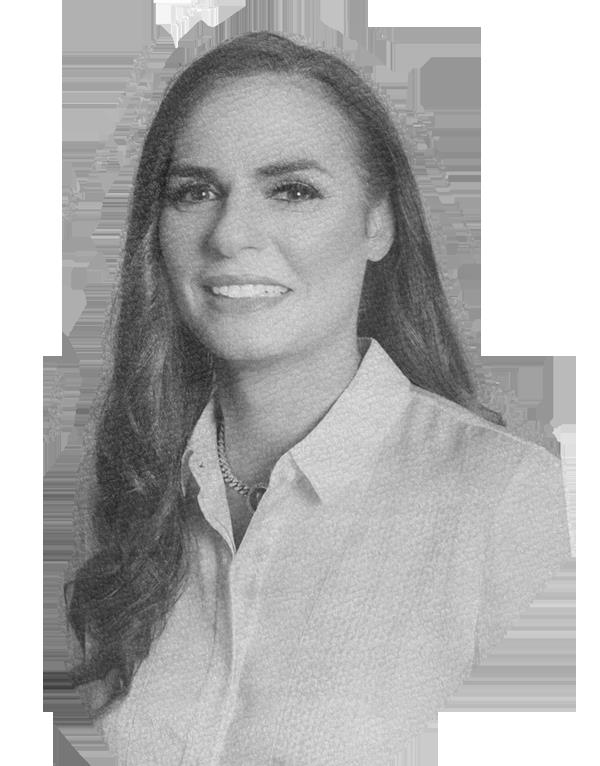
Israel’s most rightwing cabinet ever has been sworn in, with Benjamin Netanyahu heading an administration that could open the door to fervently nationalist and religious politicians to radicalise the country and policies towards the Palestinians.
Israeli liberals fear the veteran leader’s return to power in alliance with anti-Arab, ultranationalist and ultraorthodox parties will damage democratic aspects of the country’s governance. Arab citizens and the country’s LGBTQ+ community are both alarmed at what may be in store.
Netanyahu took pains to assuage concerns, telling Israeli media following his government’s swearing in at the Knesset: “There is no reason to be concerned. My government will care for all the citizens of Israel.”
The cabinet was voted in by a 63 to 54 tally, capping the right’s victory in November elections and coalition agreements between Likud and far-right parties that, if implemented, could harm Israel’s relations with western allies. There are fears that the government, which openly calls for annexation of the West Bank, could seal the fate of a possible two-state peace compromise with the Palestinians.
Speaking from the West Bank, where tensions have already been high in recent months, Dalal Salameh, a member of the central committee of the ruling Palestinian Fatah movement, warned the new government could trigger a new intifada.
“This is a fascist government whose main goal is exclusive control over all of Palestine,” she said. “These people will lead to an explosion because of how they think and how they will act on the ground. An explosion will come because the Palestinians will not accept it and this will lead to an intifada and going into unexpected areas.”
“This situation leaves no possibility for people to see light,” she said.
Speaking in the Knesset before presenting his ministers, Netanyahu, who was in power from 2012 to 2021 before being voted out amid corruption charges he denies, said allegations he is undermining democracy were unfounded. “Losing elections is not the end of democracy. It is the meaning of democracy. Respect the decision.”
Amir Ohana, a Netanyahu loyalist taking up his post as the first openly gay Knesset speaker, vowed the government “will not harm a single child or family”.
Concerns over where Netanyahu and his ministers are headed were heightened earlier this week with the publication of coalition agreements and guidelines that call for annexation of the West Bank with the timing yet to be determined, mass regularisation of illegal settlement outposts, and amending an anti-discrimination law in a way that would allow doctors and other providers to refuse service to LGBTQ+ patients, Arabs and others if it violates their beliefs.
The government also declared it a priority to pass legislation enabling the Knesset to override supreme court decisions, thereby removing a major check on its power.
Daniella Weiss, a prominent settler leader who is close to Bezalel Smotrich, the leader of the ultranationalist Religious Zionism Party and finance minister in the new government, pointed towards radical change in an interview, saying that a “revolution” was taking place. She said the new government would promote Jewish values and more intensive Jewish settlement of the biblically resonant West Bank as well as the Negev and Galilee regions inside Israel, which have large Arab populations.
“The connection with the birthplace of the nation will be strengthened, bringing us closer to our dreams, and the chances of a Palestinian state are becoming lower and lower,” she said.
This year has already seen some of the worst West Bank violence since 2015 as Israeli forces have cracked down on Palestinian unrest and militant attacks.
Nachman Shai, the outgoing minister of diaspora affairs from the now opposition Labour party, said of the government: “If they accomplish what they want to, Israel will no longer be a democracy.”
Gadi Gvaryahu, head of the Tag Meir group that combats violence by settlers, termed the government “delusional”.
“This country was built by secular people, some of them atheists, with their feet on the ground – people without delusional ideas. If this messianic path is what we’re going on, God help us,” he said.
Members of the new government
Bezalel Smotrich, finance minister
Smotrich, 42, will gain wide influence over the future of Palestinians in the occupied West Bank. A strict nationalist with anti-Arab and homophobic views, Smotrich told an interviewer recently that Israel’s economy will flourish if people “obey” Jewish religious law.
Smotrich’s primary goal is boosting annexation efforts in the West Bank, in the belief that more Israeli settlement there paves the way for the culmination of the bibically prophesised Messianic age.
In his new capacity, Smotrich, who is a settler, is expected to worsen conditions for Palestinians, whom he has in the past suggested should be encouraged to emigrate.
Last year, he told Arab Knesset members that their presence in Israel is a “mistake” emanating from former Israeli prime minister David Ben-Gurion “not finishing the work” of throwing out all Palestinians.
Itamar Ben-Gvir, national security minister
Considered by many to be the most dangerous politician in the country, Ben-Gvir has advocated expelling “disloyal” citizens in a barely concealed reference to Israel’s Arab minority population.
A disciple of the anti-Arab rabbi Meir Kahane, the sometimes gun-touting Ben-Gvir has extremist credentials, having been convicted of inciting racism and supporting terrorism. As a lawyer, he defended people later convicted of murder and other egregious crimes against Palestinian civilians. He had for many years prominently displayed in his home a picture of Baruch Goldstein, a fellow disciple of Kahane, who killed 29 Palestinians at mosque prayers in 1994.
Ben-Gvir is politically shrewd and media-savvy. In the recent campaign, he modified some of his old messages, encouraging his followers to chant “death to the terrorists” rather than “death to the Arabs”.
Avi Maoz, deputy minister
Leader of the far-right, anti-LGBTQ+ Noam party, which has only one Knesset seat, Maoz will wield considerable power over Israeli education as a deputy minister.
A settler in the Wadi Hilweh neighbourhood of occupied East Jerusalem, which he views as the cradle of biblical King David’s kingdom, Maoz, 66, espouses a state guided by ultra-conservative Jewish religious principles in which the chief rabbinate is a fully fledged branch of the government. Noam campaigned by stoking hatred of the LGBTQ+ community and Reform Jews, who are adherents of the most liberal branch of the faith and the largest denomination in the US. He opposes women joining the army, saying a woman’s role is to have children and raise an “exemplary” family.
Netanyahu has created for Maoz a new “National Identity” government agency to inculcate his views. More worrisome to a broad segment of the Israeli public is that Netanyahu has given him control of external school programmes, which used to be under the purview of the education ministry. Opposition leader Yair Lapid fears that he will use this to promote “dark, homophobic, nationalist and violent” teachings.
Aryeh Deri, interior and health minister
Head of the ultra-orthodox Shas party, whose political base is made up primarily of lower-income Jews with roots in the Arab world, Moroccan-born Deri is a close ally of Netanyahu. His career has been fraught with corruption allegations and convictions and includes serving time in prison from 1999-2001. On Tuesday, the Knesset amended a law to enable him to serve as a minister in the new government despite being on probation after reaching a plea bargain deal for tax evasion charges.
Netanyahu has showered on Deri a bevy of posts in this government: deputy premier, interior minister and health minister, and in two years he is slated to rotate into the job of finance minister. Critics view him as primarily a sectoral politician concerned with building up Shas institutions and power. Secular Jews and women’s rights advocates are wary that Shas will propel initiatives to expand the role of religion in society at their expense.
Yariv Levin, justice minister
Enjoying an especially close relationship with Netanyahu, Levin is expected to spearhead a drive to weaken the supreme court and other judicial checks and balances. In Levin’s view, the court is an elitist leftwing body that acts against the will of the majority. “The situation of rule by judges is not democracy,” he told Galei Zahal, the army’s radio station, in July. In fact, the court has recently moved to the right.
Levin backs giving the Knesset power to override supreme court decisions and altering the way judges are selected to subordinate the judiciary to the cabinet. Critics say the plans of the new government to cripple the judiciary are aimed at least in part at engineering the cancellation of ongoing corruption proceedings against Netanyahu.
Haaretz columnist Ravit Hecht has contrasted Levin’s calm style with what she considers his explosive and destructive ideas, terming him “the most sophisticated operator in Israeli politics”.












